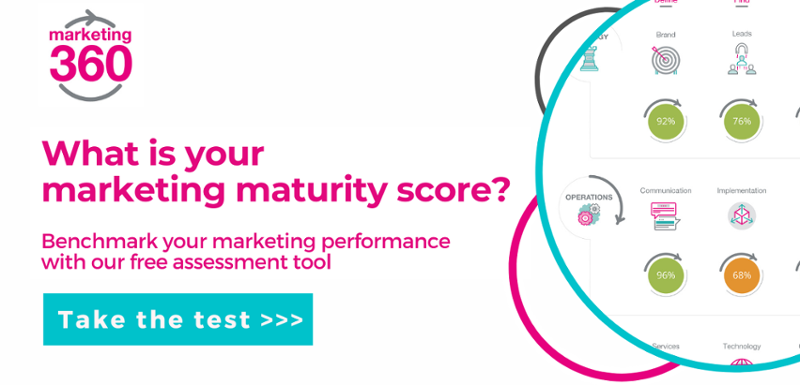A lot of people think that marketing is all about the long-term. If you need short-term results, you should speak to sales. But while it’s true that marketing often works towards long-term goals, it can drive short-term growth.
A PPC push, an email re-engagement campaign, a limited time offer - all of these can deliver new customers in the space of days or weeks instead of months. But even tactical campaigns require strategic thought.
Here’s a five-step plan that will help you generate new opportunities within a short timeframe. Granted, it’s not guaranteed to 5x your sales pipeline in three months, but it will get your pipeline moving and identify existing leads in your system with purchase intent.
And you won’t know what results it will get until you try!
1. Target your existing customers
What’s your best source of short-term revenue? The customers you already have. In fact, acquiring a new customer can cost up to five times more than selling to an existing one.
Most businesses will also have a lot of stalled leads in their CRM system. These are leads that showed an interest from buying from you in the past but never made it all the way.
In marketing terms, these existing customers and cold leads are your low-hanging fruit, because not only have they shown an interest in your business in the past, you also have their contact data, which makes them relatively easy to reach.
2. Segment your leads and analyse your sales data
The next step is to segment the leads that you’ve identified into specific groups. This will help you to be more targeted in your approach when you contact them.
Here are a few questions that can help with this:
- Do any of them work in the same sector?
- What problem were they trying to solve when they approached your business?
- When was the last time they approached you?
- What was their preferred mode of communication last time you interacted with them?
Don’t forget to speak to sales when you’re gathering this information. Your CRM can only show you so much and close coordination with sales will be key if you want to close sales and not just generate new leads.
Once you’ve segmented your available contacts, prioritise them by selecting the groups that have the most sales potential, either because they’re a large group or because your business has sold to people like them in the past.
Want to improve your B2B lead generation?
Download our Step-by-Step Guide to learn everything you need to generate, nurture and convert sales leads.
3. Design your campaigns
The exact type of campaign you run will be determined by your audience and what you know about them, but here are a few ideas to get the ball rolling.
If you have a group of people who have all bought a similar product or service in the past and might reasonably want to do so again, contact them with a limited time offer.
If you have a group of people who all share a common goal, you could create a piece of useful content that will help them achieve that goal and share it with them.
If you have a group of people who all work in a specific sector, you could contact them with a relevant case study or proof point that proves that you can help them.
Whatever your campaign idea is, the key is that you need to contact them with something which is relevant to what you know about them. The more targeted and specific your communication is, the more likely they will be to pay attention.
4. Work closely with sales
Marketing alone is unlikely to have a massive impact on revenue. But when marketing works closely with sales and gives them everything that they need to work their contacts, it can make a big difference. This is sometimes called ‘sales enablement’.
Work with sales throughout the process. You’ll get more buy-in if your sales team feels like they’ve been involved from the outset. Marketing ideas that land on sales’ desk out of the blue tend to get ignored or deprioritised…
Your sales team should have a good understanding of which channels will work best for them, your job is to support them by creating content to share, crafting messages that connect and supporting the sales management process.
You can also create additional demand by sharing the content you create with contacts by social and email.
Note: Want to speak to an experienced marketer about improving your sales pipeline? Our part-time Marketing Directors are here to help. Book a free one-hour consultation.
5. If something works, repeat it
Proven tactics are marketing gold dust. So if you find something that works, double down on it.
If an idea for a campaign works for one customer segment, it may well work for others. In fact, you might even consider baking it into your marketing and sales process for all leads going forward.
There is nothing wrong with short-term sales activations at all, as long as they’re not all your marketing team is doing. Far too often marketers find themselves pressurised into prioritising short-term goals over long-term strategy because of their immediate impact. But it’s the combination of brand building and sales activations and quick wins that accelerates growth over time. Businesses ignore either at their peril.





